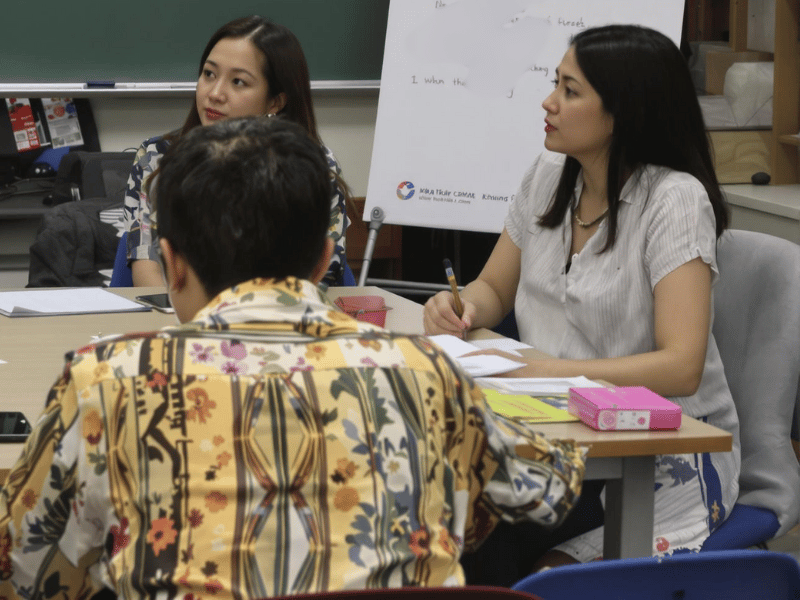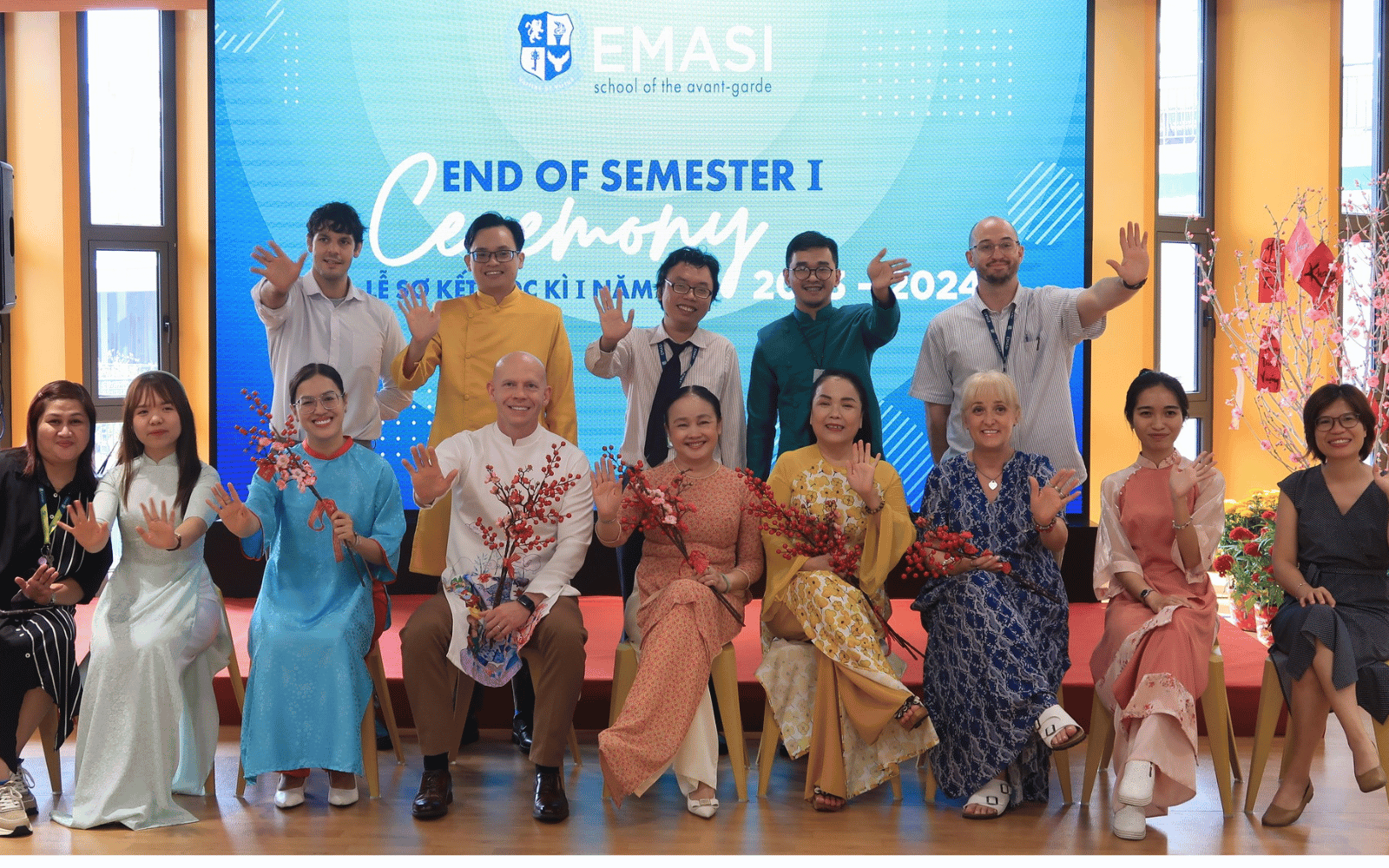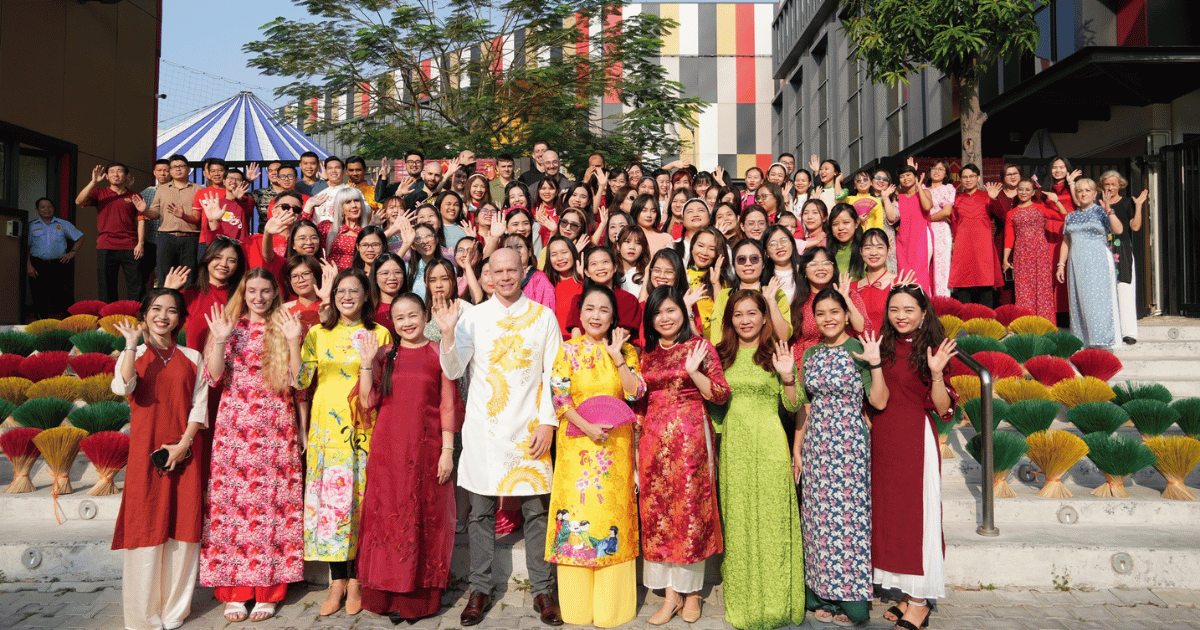Public Education in Vietnam 2025: How Patriotism and Innovation Are Reshaping Schools
Vietnam Education 2025
After training over 1,000 school principals across Vietnam and serving as Founding Managing Director of a bilingual school in Ho Chi Minh City, I've witnessed firsthand how Vietnam's education system is preparing for 2025. Here are three critical trends every education leader should understand.
Vietnam is a fast-paced country where change is constant, and public education in Vietnam is no exception.
Since 2012, I’ve worked in Vietnam’s education sector, holding roles in universities and schools.
I’ve trained 1,000 school principals in Hanoi. I taught Business A Levels at Hanoi Amsterdam. I was the Founding Managing Director of a bilingual school in Ho Chi Minh City. We taught the national curriculum, followed Ministry of Education rules, and passed inspections.
These experiences have given me a deep understanding of Vietnam's education system, from policy to practice.
The world—and education in Vietnam—has changed dramatically since 2019. The COVID-19 pandemic and a fast-changing economy have reshaped the sector. It has undergone significant shifts.
In this article, I share my personal observations from working with Vietnamese school leaders at the end of 2024.
While not a scientific study, these insights are informed by over a decade of experience in the field.
My Key Takeaways about Education in Vietnam
Key Takeaways
-
Patriotism fuels educators’ sense of purposeList Item 1
Vietnamese educators view their work as a direct contribution to Vietnam’s national growth.
-
Global ideas are being adapted, not copiedList Item 2
Vietnam’s educators critically analyze global practices and tailor them to their local context.
-
Confidence among school leaders seems to be risingList Item 3
School principals are proactive, innovative, and increasingly assertive in shaping their schools’ futures.
Context and Scope of Insights
This post draws on insights from working with a sample of principals in Hanoi, which accounts for 8.5% of Vietnam’s population.
As the country’s political and educational hub, Hanoi often sets trends that influence national education.
Vietnam's Ministry of Education and Training (MOET) centrally governs education from Hanoi. And the provincial Departments of Education and Training (DOET) implement it regionally.
This helps ensure alignment across the country.
But there do of course remain regional differences in terms of demographics and economics and these have an impact.
But, I hope this post can help shed light on national trends shaping Vietnam's education system in 2025.
Vietnamese Teachers Have a Strong Sense of Purpose
Anyone who comes to Vietnam will be impressed by the number of flags everywhere. And if you listen in on a conversation in a coffee shop, you'll hear someone say the word "Viet Nam" at some point almost every few minutes.
In short, Vietnam is an incredibly patriotic country.
And no wonder. They have an incredible history of resilience, determination, resistance to oppression and ultimate victory.
They have fought off invaders from some of the world's biggest powers including China, France, Japan, and of course the United States.
And economically, in just a few decades the country has emerged from hunger and poverty to becoming one of the most inspiring rising stars of Asia.
I've been working in Vietnam since 2012, after being posted here by Taylor's College Malaysia following their investment into British University Vietnam.

In the subsequent years, I have been twice elected to the Board of Directors of EuroCham and helped in small ways on the periphery as the EVFTA agreement between Vietnam and the European Union was signed.
I've also served as General Secretary of Britcham, joining in high level meetings between British businesses and diplomats and Vietnamese officials,
I have had front row seats in high-level discussion and debates as Vietnam navigates and sets its own course for its economic future and I've worked at the grass roots as the education system expands and develops.

My goal in sharing this background is to highlight the unique insights I’ve gained over the years in Vietnam.
People have sometimes asked me, "How do you explain Vietnam's incredible rise?"
I'm not a political scientist, nor an economist, but I do remember this video from the International Monetary Fund about Vietnam's rise and the direct link to its investments in the quality of education.
I’ve also been impressed by the World Bank’s recognition of Vietnam’s education system and its direct connection to the country’s remarkable economic growth.
Vietnam's Education: Open to Global Ideas, Grounded in Local Realities
For the most part, Vietnam's educators are eager to learn from other countries. They welcome new techniques and global perspectives.
The materials we covered included case studies from education systems around the world.
One example we explored was Finland.
Finland’s education system has a strong global reputation. It is highly student-centered, with no homework and no standardized exams. Teachers in Finland are required to hold master’s degrees, and they have significant autonomy in their work.
Vietnamese educators don’t view these systems as something to copy and paste. Instead, they analyze different practices, outcomes, and contexts for inspiration. By looking at global models, they can innovate—or confirm that their own approaches work best.
When comparing Finland to Vietnam, principals noticed both differences and similarities. For instance, teachers in both countries are highly respected. That's a rarity in many parts of the world.
Equity is also a shared value. Both systems prioritize making education accessible. every child has access to quality education, regardless of their background.
We also discussed Finland’s use of project-based learning. Vietnam has started adopting elements of this approach in its schools. However, project-based learning requires significant planning, training, and resources to implement effectively. It’s not a quick fix.
And of course, Finland and Vietnam are very different countries.
Finland’s population is just 5.5 million, while Vietnam’s is just under 100 million. Finland has been a developed country for decades, while Vietnam is aiming for this status by 2050.
Finland’s culture, shaped by its climate, values cooperation for survival. In contrast, Vietnam blends a culture of collaboration with a healthy appreciation for competition.

Exams also remain a cornerstone of Vietnam’s education system. Much like the UK’s A Levels or the US’s AP exams, standardized testing plays a crucial role in measuring progress and preparing Vietnamese students for the future.
School graduation exams aren't about to disappear and it is debatable as to whether they should.
During our discussions, there were occasional moments of defensiveness.
On a few occasions, a principal would stand up and passionately argue that Vietnam already does many of these things, and one even questioned why Finland’s GDP is smaller than Vietnam’s if its system is so great.
This was by no means reflective of the vast majority of the principals. While most principals saw the value of studying other systems, some expressed hesitation.
Interestingly, they critically examined innovative educational approaches to identify mistakes made by other countries and avoid repeating them.
For example, adopting globalized practices without preserving local traditions and values has been a critique of education systems in countries like Singapore.
At the same time, my observation was that Vietnam’s educators are highly pragmatic.
They know their country’s challenges and opportunities are unique. They also know that not every one of international education's “best practice” will fit their schools.
They have budget constraints, for example, which can hamper how much technology can be effectively implemented in classrooms.
This balance of openness and practicality is one of their greatest strengths. It allows them to innovate while staying grounded in their reality.
Vietnam's Educators Are Growing More Confident
Over the last five years, I’ve seen a noticeable change in Vietnam's school leaders.
During my recent training sessions, principals asked sharper questions and were more assertive about their needs.
They seemed more confident in their roles and decisions compared to five years ago. This confidence reflects a shift in how Vietnam's education system views itself on the global stage.
From my perspective, this growing confidence signals a broader change. Principals are no longer looking solely for guidance but are actively shaping their schools’ futures.
Some have introduced free apps like ClassDojo to communicate with families. Others are reaching out to businesses for sponsorships to bring more technology into classrooms.
They’re more willing to advocate for resources, challenge outdated practices, and experiment with new ideas.
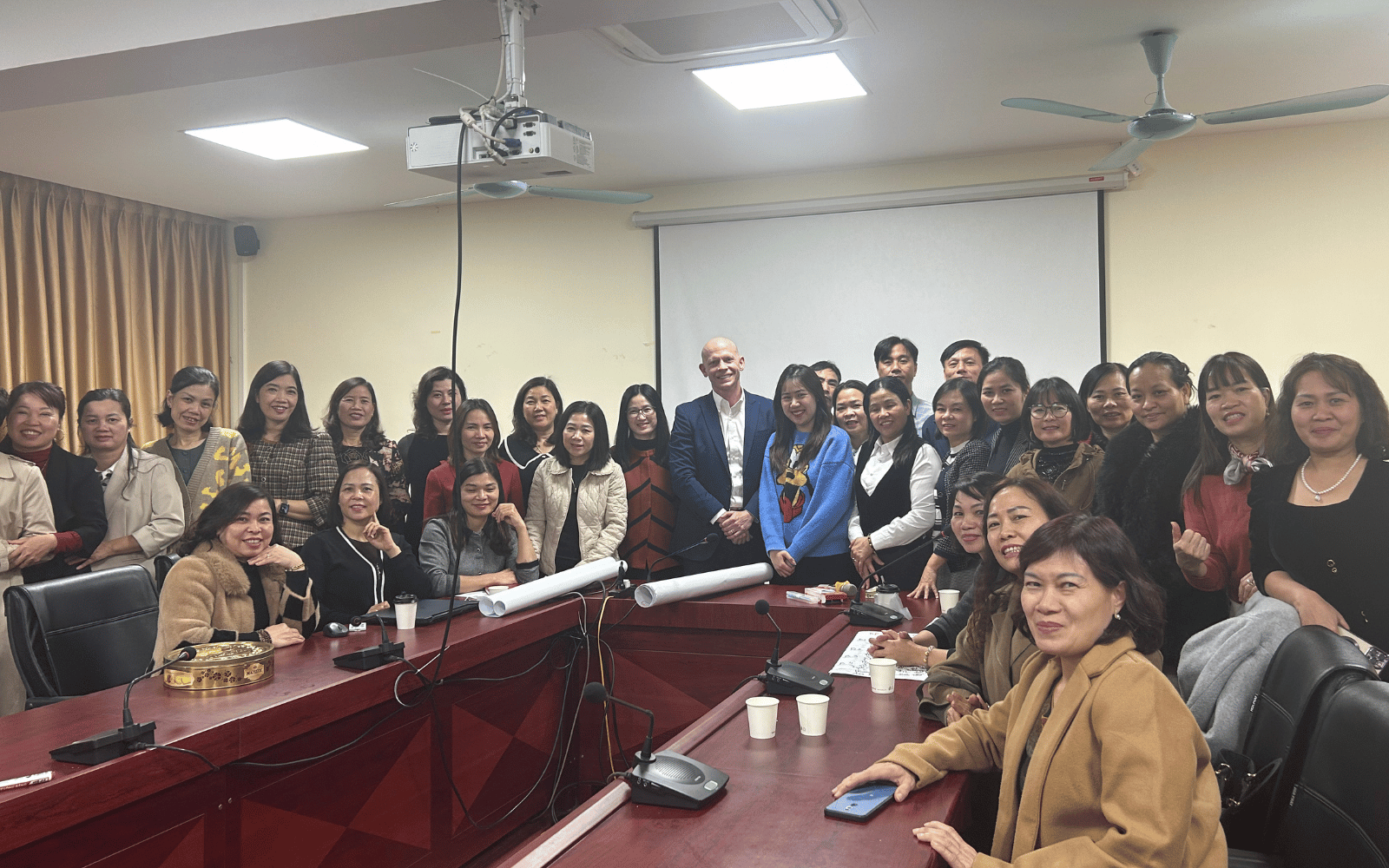
When I asked them about their biggest challenges, the answer I often heard was, "old teachers unwilling to change."
This signals to me that they’re making serious changes and bringing disruptions into the classroom.
But one thing hasn’t changed. Vietnamese teachers remain deeply motivated by their role in society. Many see teaching as more than just a job; it’s a way to contribute to their country’s growth.
It’s not unusual to see the image of teachers included in propaganda billboards throughout the country. This patriotic sense of duty continues to drive their work, even as challenges persist.
Five years ago, open discussions about innovations and ideas for education often became debates about budget limits and how to overcome resistance to change by older teachers.
Five years later I observed a noticeable shift toward proactive solutions.
One factor contributing to this confidence is the increased emphasis on professional development.
Training programs, both local and international, have equipped educators with the skills and knowledge needed to lead effectively.
Government initiatives to improve school infrastructure and teacher training have also played a role.
But I want to emphasize that this confidence isn’t just about professional growth.
It’s also tied to a deep sense of responsibility.
Vietnamese educators understand the pivotal role they play in their country’s sustainable development. They’re not just implementing policies; they see their work as shaping the next generation of leaders, innovators, and citizens.
They take their responsibility seriously and they recognize the impact they've made on Vietnam's development.
Vietnamese Educators are Optimistic and Ready for Change
The biggest shift I’ve noticed is their readiness to embrace change. In my first training five years ago, many principals were hesitant to try new approaches.
Today, there’s a clear sense of optimism and motivation to improve. They see change not as a threat, but as an opportunity to grow and innovate.
Vietnam’s education system is evolving rapidly. The last five years have shown how much potential there is for continued progress. With educators this driven and focused, the future looks promising.
Educators see change not as a threat but as an opportunity. They’re embracing new technologies and teaching equipment, exploring creative and active teaching methods, and rethinking traditional classroom dynamics.
For example, digital tools are slowly becoming more common in Vietnamese schools.
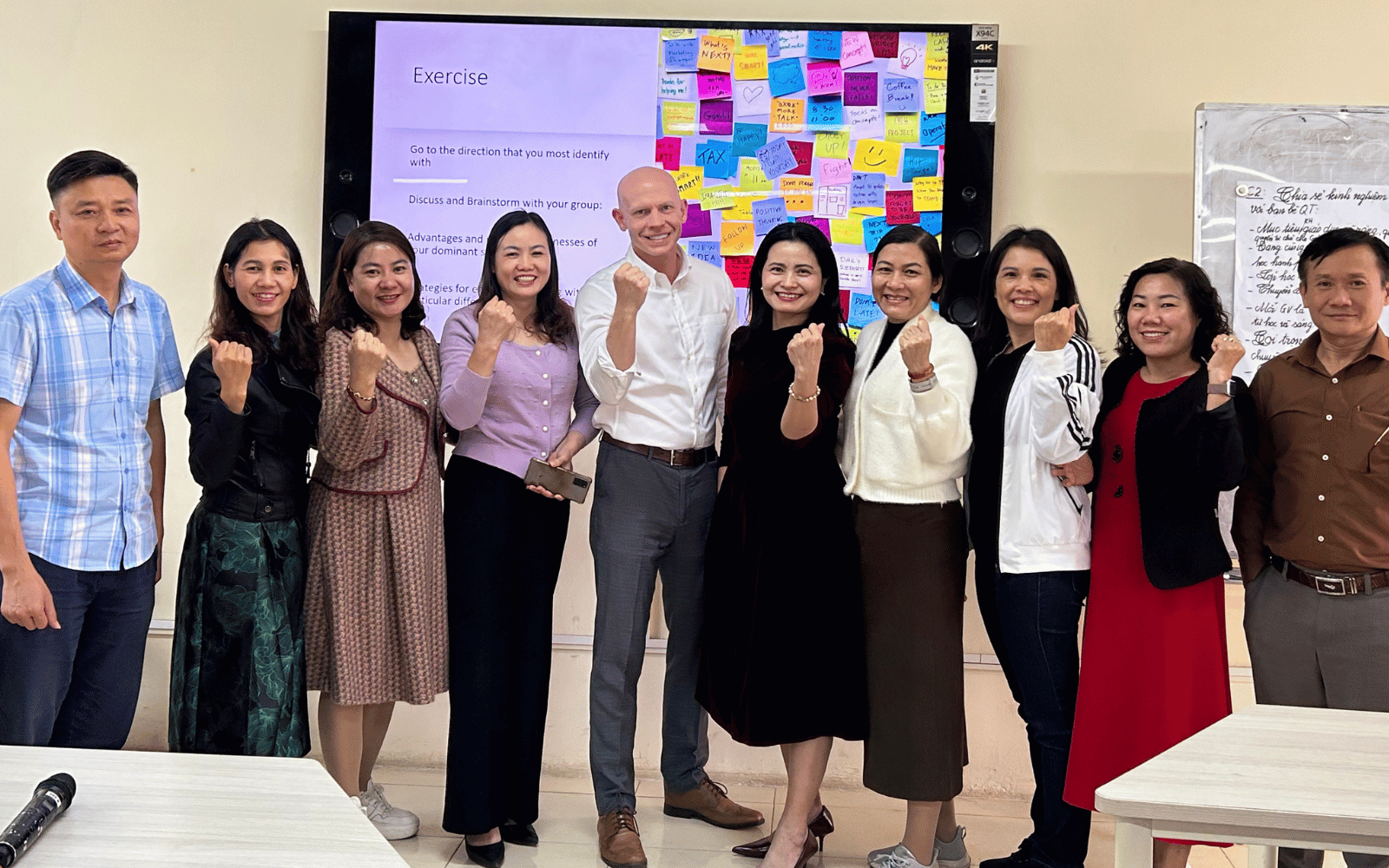
While access varies, especially in rural areas, there’s a clear push to integrate technology into everyday learning. This also happens to be a focus of Teach for Vietnam, of which I am an advisory board member.
Teachers are using apps, and chatgpt, thinking about online safety, and looking for accessible online resources to engage students more effectively.
This readiness for change is also evident in how educators approach challenges. They’re finding innovative ways to work within their constraints, whether by forming partnerships with local businesses or leveraging community resources.
Their solutions may not always be high-tech, but they’re practical and impactful.
This optimism is critical as Vietnam’s education system continues to evolve. It’s a reminder that while challenges persist, the drive to improve is stronger than ever. With educators this motivated and resourceful, the future looks bright.
Final Observations about the State of Education in Vietnam in 2025
Vietnam’s education system is at an important crossroads.
What I see is a dynamic blend of tradition and innovation, shaped by a deep sense of purpose and a willingness to adapt.
The country is determined to become a developed nation by 2050 and the educators know their important work will play a big role in making this possible.
They also know they might not get all the resources they need right away to make this happen as smoothly as they would like.
But over the last decade, I’ve seen firsthand how educators are driving this transformation.
I’m confident they will continue to do so.
Whether it’s continuing to be open to global ideas, navigating challenges with pragmatism, or fostering a sense of national pride, Vietnam’s educators are being guided to do what they think is best not just for students but for their country.
One thing is clear to me: Vietnam is a fast paced, ambitious country thanks in large part to teachers and school leaders who are determined and driven to develop their country.
